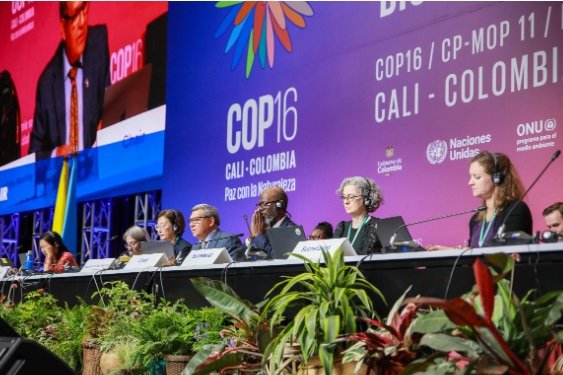
At the U.N. COP16 nature summit in October 2024, nations are preparing to negotiate a groundbreaking deal that could reshape the global approach to the use of genetic information from nature. Known as digital sequence information (DSI), this data is essential for research and commercial applications in industries such as pharmaceuticals, agriculture, and biotechnology. The summit’s goal is to establish a multilateral system that ensures countries rich in biodiversity are fairly compensated for the use of their genetic resources, while also promoting sustainable practices and conservation.
What is Digital Sequence Information (DSI)?
DSI refers to the digital representation of genetic codes extracted from living organisms. Technological advancements have made it possible to quickly sequence genomes and store this information in public databases accessible to researchers worldwide. Unlike physical samples of genetic material, DSI consists of the digital data that researchers and companies use to develop new products or enhance existing ones.
The focus at COP16 is on regulating the use of DSI, ensuring that the benefits derived from this information are shared with the countries that possess rich biodiversity, like Brazil, India, and various African nations. These countries are keen on protecting their resources from exploitation by global corporations that profit from using genetic data without compensating the source nations.
Why is DSI Important?
DSI is a driving force behind innovation across multiple sectors, including medicine, cosmetics, agriculture, and biotechnology. For instance, pharmaceutical companies use genetic information to develop life-saving drugs, while agribusinesses rely on it to create disease-resistant crops or improve food security. The industries linked to DSI generate an estimated $1.6 trillion annually, though not all of this revenue directly stems from genetic data.
Countries that are home to diverse ecosystems often feel that their genetic resources are exploited without adequate compensation. Brazil and India, for example, have raised concerns over corporations using DSI from their biodiversity to develop profitable products without sharing the financial benefits. This imbalance has prompted these nations to call for a global system that fairly compensates them for the use of their natural genetic wealth.
Key Negotiation Goals at COP16
At COP16, negotiators will focus on several critical objectives:
- Who Pays for DSI: Determining which industries or companies should contribute to a compensation fund for the use of DSI.
- How Much to Pay: Establishing a fair percentage of revenue from sectors like pharmaceuticals and agriculture that heavily rely on genetic information.
- Utilization of Proceeds: Ensuring that the funds generated from DSI use are channeled into conservation efforts and development initiatives, particularly for poorer nations.
One proposed solution is to charge companies a percentage of their revenue for access to DSI databases. A U.N.-commissioned study suggests that charging between 0.1% and 1% of annual revenues from industries that benefit from DSI could generate between $1 billion and $10 billion annually. This revenue could be instrumental in supporting biodiversity conservation and enhancing the genetic research capabilities of developing nations.
Implementation Challenges
While the proposed system has the potential to be a game-changer, implementing it at the national level will pose challenges. Once a deal is reached at COP16, countries will need to create laws and regulations to enforce the agreement. This process may be lengthy, and disparities between countries’ legal systems could complicate the rollout.
One possible solution is to introduce a voluntary payment system that allows companies to pay an agreed-upon rate for using DSI. This approach could incentivize quicker adoption of the rules while allowing businesses to maintain access to valuable genetic data.
At the same time, it’s crucial that the agreement ensures free access to DSI for non-profit research institutions. Free access is vital for advancing scientific knowledge, fostering innovation, and promoting biodiversity conservation efforts globally. Balancing the interests of commercial entities with the need to safeguard genetic resources and ensure their sustainable use is one of the summit’s key challenges.
Shaping the Future of Genetic Resources
The outcome of COP16 has the potential to revolutionize how genetic information is used and shared globally. A fair and transparent compensation system could foster greater collaboration between countries and industries, encouraging innovation while simultaneously protecting biodiversity. By recognizing the value of DSI and ensuring equitable sharing of its benefits, COP16 represents a critical moment for the sustainable use of genetic resources.
In a world where genetic information plays a central role in both science and industry, COP16 aims to build a framework that protects biodiversity, supports conservation, and promotes fairness in the use of nature’s invaluable resources. The summit’s decisions will likely have far-reaching implications, influencing how genetic data is accessed, shared, and compensated for in the years to come.

